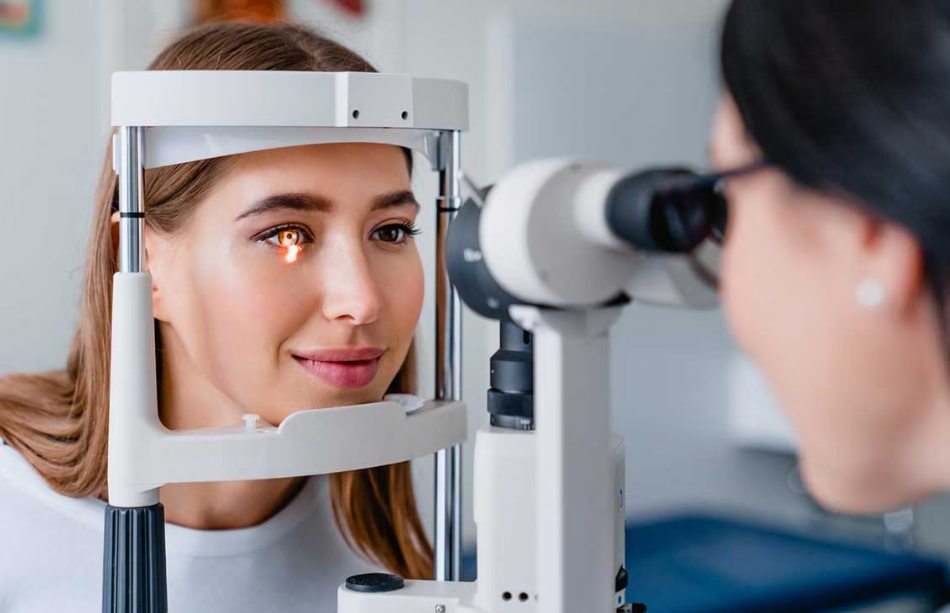When people think about their health, eye care often comes last on the list. We book regular check-ups with our GP, visit the dentist every six months, and even schedule skin checks — but how often do you book an eye test with your optometrist?
Your vision plays a crucial role in your daily life, from driving safely and working on screens to enjoying time with loved ones. Yet many people only see an optometrist in Sydney CBD when something is obviously wrong. The truth is, regular eye tests are just as important as any other health check, and they can save you from bigger problems in the future.
In this blog, we’ll explain why you should make eye tests a routine part of your healthcare, what happens during an eye exam, and how often you should book one.
The Importance of Regular Eye Tests
A regular eye test is not just about checking if you need glasses or contact lenses. It’s a comprehensive assessment of your vision and overall eye health. Your optometrist can detect subtle changes in your eyesight, screen for eye diseases, and even identify signs of general health issues.
Here are some key reasons why regular eye tests are essential:
- Detecting vision changes early – Small prescription changes can impact your comfort, concentration, and safety, especially when driving.
- Preventing eye disease progression – Conditions like glaucoma, cataracts, and macular degeneration may not show symptoms in the early stages.
- Checking overall health – Eye tests can reveal underlying health conditions such as diabetes, high blood pressure, and even neurological problems.
- Children’s development – Kids rely heavily on their eyesight for learning and social interaction. An undiagnosed vision problem can affect school performance and confidence.
- Age-related monitoring – As we get older, our risk of eye conditions increases. Regular check-ups help maintain independence and quality of life.
What Happens During an Eye Test with Your Optometrist?
If you haven’t had an eye test in a while, you may be wondering what to expect. A comprehensive eye exam usually takes around 20–40 minutes, depending on your needs. Your optometrist will:
- Ask about your history – This includes your vision, lifestyle, family history of eye diseases, and any symptoms you may have noticed.
- Test your vision – Using charts and lenses, your optometrist will measure how clearly you can see at different distances.
- Check your eye health – Special instruments are used to look inside your eyes, check your retina, and measure eye pressure.
- Assess how your eyes work together – This is especially important for children and people who experience eye strain.
- Provide advice and solutions – If you need glasses, contact lenses, or further treatment, your optometrist will guide you through the options.
An eye test is quick, painless, and gives you peace of mind knowing your vision and eye health are being looked after.
How Often Should You Have an Eye Test?
The general guideline is to book an eye test every two years, but some people may need more frequent check-ups. For example:
- Children – Every year, especially before starting school.
- Adults – Every two years, or sooner if you notice changes.
- Over 60s – Every 12 months, as risks of age-related conditions increase.
- People with health conditions – Diabetes, high blood pressure, or a family history of eye disease may require more frequent visits.
If you ever experience symptoms such as blurred vision, headaches, difficulty reading, or trouble seeing at night, don’t wait – book an appointment with your optometrist right away.
Eye Tests for Children
Did you know that one in five children has an undetected vision problem? cataract treatment in Singapore Kids may not realise they can’t see clearly, and often parents don’t notice either. Poor vision can make it harder for children to read, learn, or even enjoy sports.
A children’s eye test can identify issues like:
- Short-sightedness (difficulty seeing far away)
- Long-sightedness (difficulty seeing up close)
- Lazy eye (amblyopia)
- Eye coordination problems
The earlier these issues are detected, the easier they are to correct. Regular eye tests give your child the best chance to thrive at school and in everyday life.
The Link Between Eye Health and General Health
Your eyes are more than just “windows to the soul” — they’re also windows to your health. During an eye test, your optometrist can detect signs of systemic conditions such as:
- Diabetes – Early signs of diabetic retinopathy show up in the eyes before other symptoms appear.
- High blood pressure – Changes in blood vessels in the retina can indicate hypertension.
- Cholesterol issues – Deposits in the eyes can point to high cholesterol.
- Neurological conditions – Optic nerve changes can sometimes reveal problems such as multiple sclerosis.
This makes regular eye tests a valuable tool not only for protecting your eyesight but also for monitoring your overall health.
Common Eye Conditions That Regular Tests Can Detect
Glaucoma
Known as the “silent thief of sight,” glaucoma causes damage to the optic nerve and often has no symptoms until advanced. Early detection through an eye test is critical.
Cataracts
Cataracts cause cloudy vision and can develop slowly with age. Your optometrist can monitor their progression and advise on treatment options.
Macular Degeneration
A leading cause of vision loss in older Australians, macular degeneration affects central vision. Eye tests can help track early signs.
Dry Eyes & Eye Strain
Modern lifestyles, especially screen use, contribute to dry eye syndrome and digital eye strain. Your optometrist can recommend treatments and lifestyle adjustments.
FAQs About Eye Tests
- How much does an eye test cost?
In many cases, Medicare covers the cost of standard eye tests in Australia, making them affordable and accessible. - Do I need an eye test if I can see fine?
Yes. Many eye conditions develop without noticeable symptoms. Regular diabetic eye exam Sydney can detect problems, such as diabetic eye disease, before they cause permanent damage. - Can I drive after an eye test?
Yes, in most cases you can. However, if your optometrist uses dilating eye drops, your vision may be blurry for a few hours. - How do I find an optometrist near me?
A quick search for “optometrist near me” or “eye test [your suburb]” will show local practices. Always choose a qualified optometrist who offers comprehensive testing.
Final Thoughts: Don’t Delay Your Next Eye Test
Your eyesight is precious, and caring for it should be a priority at every age. A regular eye test with your optometrist helps protect your vision, detect eye diseases early, and even spot signs of other health conditions.
If it’s been more than two years since your last eye check — or if you’ve noticed changes in your vision — now is the time to act. Book an appointment with your local optometrist and give your eyes the attention they deserve.

















